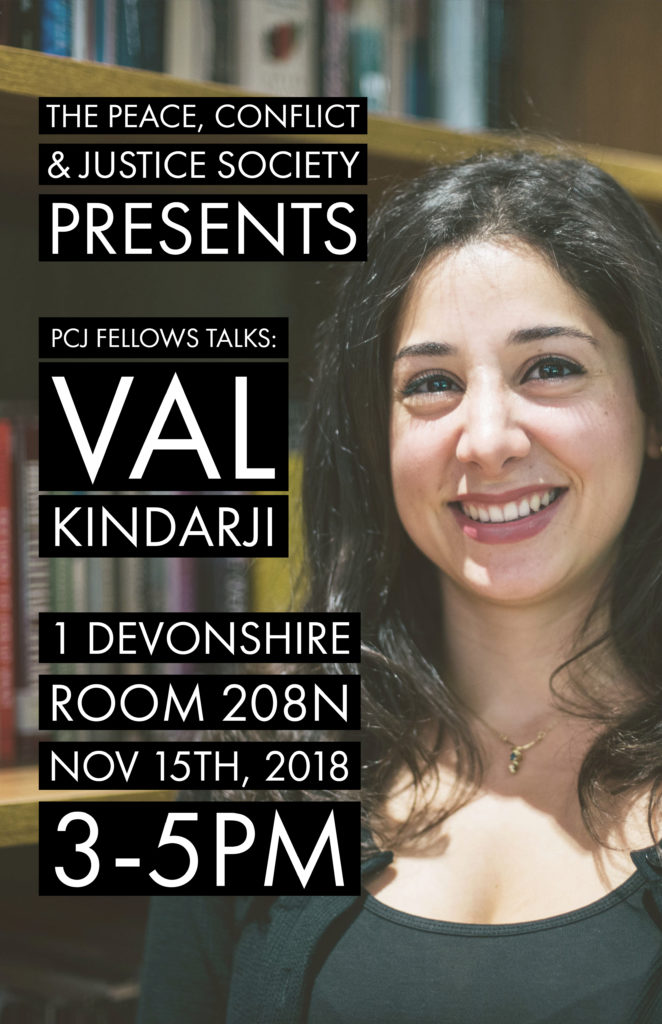The Trudeau Centre Fellow in Peace, Conflict and Justice is for Political Science doctoral students at the University of Toronto who are conducting research in areas related to peace, conflict and justice. You can read about our three PCJ fellows here.
The recipients of this award become fellows of the Centre and have the opportunity to participate in its academic life. This includes presenting about their research at a ‘Trudeau Fellows Talk’ organized by the PCJ Society.
Val’s research fills a gap in political science literature: namely, the role of middle powers such as Canada when responding to conflicts. I found it fascinating when she described how little literature there was on this topic as she wrote about it for her master’s degree. She continues this research today as she completes her PhD, comparatively studying Canada’s intervention and lack thereof in Libya and Syria. While Canada responded quickly and was active in the NATO coalition to overthrow the Gaddafi regime in Libya, it refrained from intervening in Syria despite similar civil conflicts. Val argues that assessing the conditions and incentives that lead to these decisions will lead to a greater understanding of how it acts as a middle power in the international community.
She spoke about these topics to a packed room of students, laying out her primary theory (the neoclassical realist theory of intervention) and explaining her research decisions in the process. She then continued to provide historical and political contexts to the two cases, and outlined the ways in which they varied. I found that doing this was very helpful—it allowed us to see what PhD-level work looked like and provided enough context about the situations that allowed us to further engage with the later arguments.
I personally found it fascinating how different the primary incentives are for a country like Canada than they are for superpowers like the US, Russia and China, whose actions and decisions are more frequently studied in political science courses and the literature more generally. Domestic pressure (in the case of Libya) or the lack thereof (in Syria) was a key aspect of the government’s decision to not intervene; furthermore, Canada was also more susceptible to the decisions of other powers to intervene with them to create coalitions. I noted that while economic interests were involved, there was less emphasis on intervening to promote abstract ideals such as democracy. Learning about these cases were doubly interesting as both a Canadian citizen and as a student. I hope and believe that her research will provide more insight to the role of Canada and other middle powers in the international system.
I was later pleasantly surprised to learn about cyber-recruitment, which Val used to wrap up her presentation. She outlined three cases—“Alex”, “Jihad Jane”, and “Mohammad H. Khalid”—and explained the process of their radicalization. Each case had its distinct characteristics, but a point to note was the common vulnerability and some form of mental illness that these individuals shared. Moreover, these people were largely marginalized or ostracized from mainstream society. It made me wonder, somewhat soberingly: If we had only supported these people more, could this have been avoided?
Her thesis is tentatively titled Sitting on our Hands: Comparing Canada’s Intervention Policy in Libya and Syria in the Wake of the Arab Spring, and her article around cyber-recruitment is on its way to publication in the near future. I hope you’re as excited as I am to see Val’s projects come to completion.
